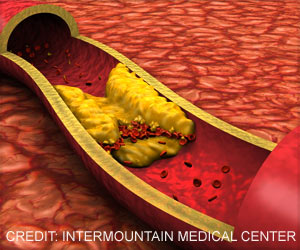Transient neurological attacks (TNAs), such as temporary amnesia or confusion, are at an increased risk of stroke and dementia.
A recent study has revealed that people experiencing symptoms described as transient neurological attacks (TNAs), such as temporary amnesia or confusion, are at an increased risk of stroke and dementia.
TNAs involve three types of symptoms - non-focal, which includes non-localizing cerebral symptoms; focal, known as transient ischemic attacks (TIAs), which is similar to ischemic stroke; and a mixture of both focal and non-focal.The study included 6,062 participants of 55 years or above, who were free from stroke, heart attack, and dementia when they entered the study (1990-1993), and were followed-up until January 2005.
They examined the incidence and prognosis of focal, non-focal and mixed TNAs.
The researchers found that TNA occurred in 282 patients with focal symptoms, 228 with non focal, and 38 with mixed.
The incidence rates for non-focal TNAs were almost as frequent as focal TNAs in both men and women.
They also found that the incidence rates increased strongly with increasing age, while mixed TNAs were less frequent.
Advertisement
The findings revealed that patients with focal TNA had more than twice the risk of stroke and 2.6 times the risk of ischemic stroke, which increased to
Advertisement
TNA had a 56 percent higher risk of stroke and 59 percent higher risk of dementia, than participants without TNA, whereas patients with mixed TNA were at increased risk of stroke especially ischemic stroke, vascular death and dementia.
The authors said that this study challenges the idea that non-focal TNAs are harmless.
“Our findings challenge the strong but unfounded conviction that nonfocal TNAs are harmless. On the contrary, our findings suggest that nonfocal TNAs are not only a risk factor for stroke, but also for dementia,” wrote the authors.
The study conducted by Dr. Michiel J. Bos, of Erasmus Medical Center, Rotterdam, the Netherlands, is published in JAMA.
Source-ANI
KAR/M










